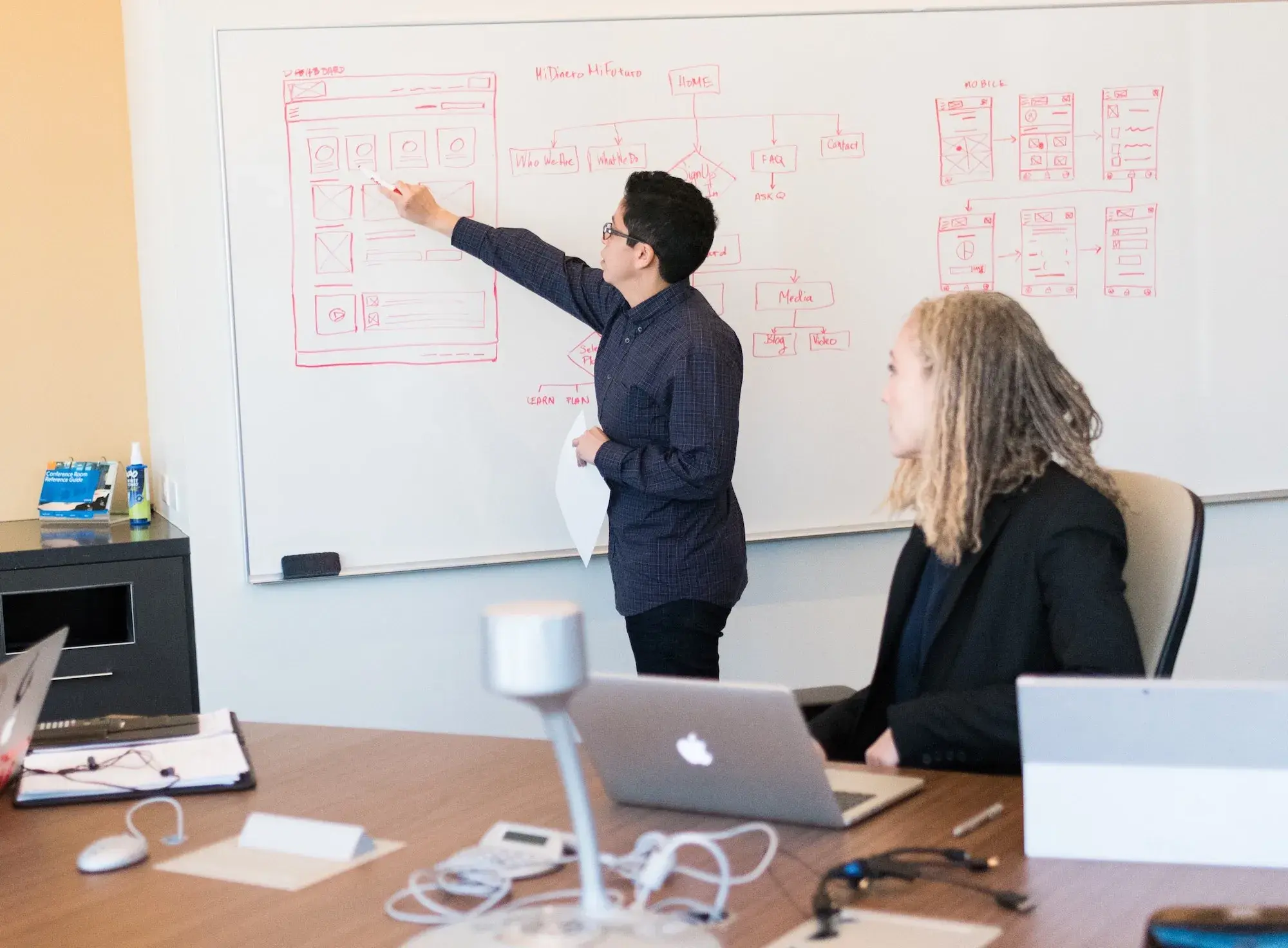6 Soft Skills Every Developer Needs to Get Hired

Beyond coding expertise and certifications, employers now prioritize the "human factor" — those crucial yet often overlooked soft skills that elevate both individuals and teams.
Gone are the days when developers were stereotyped as isolated problem-solvers in basement cubicles. Modern employers seek developers who bring not only technical expertise but also emotional intelligence (EQ), adaptability, and communication prowess to the table.
“Research conducted with Fortune 500 CEOs by the Stanford Research Institute International and the Carnegie Melon Foundation, found that 75% of long-term job success depends on people skills, while only 25% on technical knowledge.” —AMA
Soft skills are now the greatest complement to your hard skills for retention, particularly in tech roles where collaboration and creativity are essential to success. It’s not just about how fast you can code anymore—you need to be someone your colleagues trust and want to work with.
The Changing Role of Soft Skills
In the past, tech hiring decisions revolved heavily around analytical and technical expertise. But today, that’s no longer enough. As industries become more interconnected, the ability to communicate effectively, work across functions, and adapt to new challenges has become just as critical. Employers are realizing that people who possess a balance of technical and interpersonal skills contribute more to long-term project success.
“In an increasingly data-driven economy, the demand for ‘soft’ social skills, like teamwork and communication, increase with greater demand for ‘hard’ technical skills and tools.” —PNAS
Yet, soft skills are notoriously hard to quantify. Unlike code performance or task completion rates, qualities like empathy, reliability, and adaptability don’t show up in a KPI dashboard. Despite this, they are often the difference-makers in both individual and organizational performance. A project’s success often hinges on how well team members communicate, collaborate, and support each other through challenges.
Soft Skills: A Key Predictor of Career Success
Teams are no longer limited by geography. Distributed teams are now standard across industries, connecting colleagues across time zones and cultures. In this new environment, soft skills are not just valuable—they’re essential.
To help developers thrive in this landscape, we've highlighted six core areas to focus on. These are by no means the only important skills, but they offer a strong foundation for professional growth and improved collaboration.
Here are some categories you can focus on right now that will make you stand out in the crowd:
6 soft skills developers can improve today
1. Communication and people skills
Strong communication skills are essential, especially in a world dominated by tools like Slack, Zoom, and Trello. But it’s not just about knowing how to write a clear message or use emojis effectively. It’s about listening attentively, articulating ideas clearly, and knowing when to move a conversation from text to a quick call to avoid confusion.
Developers need to communicate across multiple audiences—teammates, stakeholders, and sometimes end-users. Understanding your audience and tailoring your message to their needs can make collaboration smoother and more productive.
Additionally, great communication involves empathy: being able to understand and respect other perspectives, especially in high-pressure situations where deadlines loom.
2. Teamwork and collaboration
No one builds great software in isolation. Development is a team sport, requiring contributions from diverse minds and perspectives. Team success depends not only on individual technical skills but also on how well people work together.
This means fostering an environment of trust, accountability, and shared ownership. Teams that communicate openly, provide constructive feedback, and stay aligned on goals are better equipped to navigate changes and challenges. Remember, collaboration isn’t just about cooperation—it’s about co-creating solutions that wouldn’t have emerged from siloed efforts.
3. Professionalism and work ethic
Professionalism has taken on new meaning in the era of remote work. It’s no longer just about being present at your desk from 9 to 5. Instead, it’s about being proactive, managing your time effectively, and delivering results without constant oversight.
Developers need to prioritize tasks, stay organized, and demonstrate reliability in both their technical and interpersonal commitments. This can include small but impactful actions like preparing for meetings, respecting deadlines, and following up with colleagues when issues arise.
Building a strong work ethic also involves maintaining balance. Remote work can blur the boundaries between work and life, so it’s vital to set healthy routines that keep you productive without burning out.
4. Strategic thinking and creativity
With technology advancing at breakneck speed, it’s not enough to simply follow instructions. Developers who can think strategically—identifying problems early and offering innovative solutions—add significant value to their teams and organizations.
Creative problem-solving isn’t limited to design roles. It involves approaching challenges with curiosity, experimenting with new methods, and staying open to feedback. Regularly investing time in learning new skills or exploring emerging technologies can also spark fresh ideas and help future-proof your career.
5. Optimism and patience
Tech projects rarely go exactly as planned. Delays, misunderstandings, and unforeseen bugs are part of the process. That’s why maintaining a positive, solution-oriented mindset is essential. Patience helps you stay composed when things go wrong, allowing you to problem-solve without adding unnecessary stress to the team.
Optimism can also be contagious. Leaders who remain hopeful inspire confidence and resilience in their teams, creating a culture where people feel motivated to tackle challenges head-on.
Taking regular breaks to recharge—whether through a short walk or a digital detox—can help maintain your emotional well-being and perspective.
6. Agility and flexibility
Change is the only constant in tech. Whether it’s new frameworks, shifting project priorities, or evolving user needs, developers must be adaptable to stay relevant. Flexibility involves more than just being willing to pivot; it requires a mindset that embraces continuous learning and iteration.
The concept of agility goes beyond development methodologies. It’s about being resilient in the face of setbacks and maintaining momentum even when the path forward isn’t clear. Employers increasingly value developers who can navigate ambiguity while keeping long-term goals in sight.
Join our team and get started
You don’t need to master every soft skill overnight. Personal and professional growth is an ongoing journey. By focusing on these key areas, you can position yourself for long-term success in a competitive job market.
At Esteemed, we understand that no one succeeds alone. That’s why we’ve built a thriving network of developers and tech professionals who support one another through collaboration and mentorship.
Whether you’re just starting out or looking to advance your career, we’re here to help you build the skills and connections you need to thrive. Explore Colleagues and discover how we can help you reach your goals.
